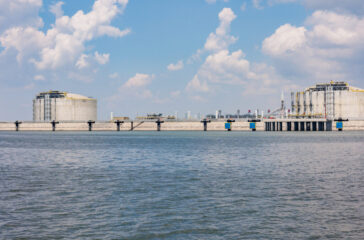EPA boasts of clean energy advances as reversal threat looms
By Shannon Kelleher
In the final week before Donald Trump takes office, federal regulators announced today that the Biden administration has awarded nearly $69 billion through two historic pieces of legislation designed to slash greenhouse gas emissions, lower energy costs, support the clean energy transition and help communities address pollution.
“In just three years, [the US Environmental Protection Agency (EPA)] has funded thousands of incredibly popular projects in every part of the country, from electrifying school buses in rural Texas to replacing lead pipes in Pittsburgh,” Zealan Hoover, senior advisor to the EPA administrator, said on a press call Friday.
As of Jan. 6, the EPA had awarded 93% of grant funding made available by the Inflation Reduction Act (IRA), according to the new report. Biden signed the IRA in August 2022, with the administration calling it “the largest investment in clean energy and climate action ever.” The agency has awarded 82% of funding through the so-called Bipartisan Infrastructure Law (BIL), which passed in November 2021.
The report comes amid concerns that a Republican budget reconciliation bill could seek to reverse the IRA. A list of “spending reform options” reportedly distributed among House Republicans includes reversing $468 billion in Biden climate policies, which would entail repealing, among other measures, IRA green energy grants.
But while it may be easier to repeal the IRA under a Republican-controlled federal government, Republican lawmakers may hesitate to get rid of funding that benefits their constituents, according to the Brookings Institute, an independent, non-partisan think tank.
Almost 60% of announced IRA projects are in Republican congressional districts, according to a two-year review of the IRA released in August. That month, 18 Republican House Representatives signed a letter calling for attempts to repeal the IRA to leave the legislation’s energy tax credits in place.
 EWG
EWG






